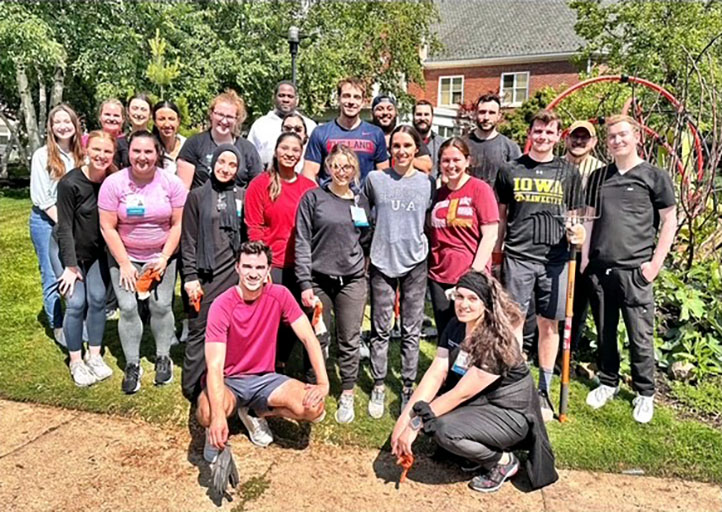Welcome
Welcome to the Cleveland Clinic Main Campus Pharmacy Residency Programs! We are excited that you are interested our academic medical center for your pharmacy residency training. As a pharmacy resident at Cleveland Clinic Main Campus, you will take care of patients with a wide variety of diseases and conditions. You will interact with internationally and nationally recognized physicians and researchers. Pharmacists, including pharmacy residents, are an integral part of our patient care teams and service lines. Our preceptors foster a rich training environment to help the residents successfully graduate and reach their professional goals. We offer a Residency Research Curriculum and longitudinal Research Skills Workshops; additionally, we financially support ASHP’s Pharmacy Leadership Certificate: Management Basics that residents have the option to participate in. Information on all of the Main Campus Pharmacy Residency Programs is located on this website, including admission requirements, program structures, preceptor profiles, current resident profiles, and other residency requirements. We are proud to be part of the Cleveland Clinic Main Campus Pharmacy Residencies and look forward to meeting you. If you have any questions, please do not hesitate to contact us.

Amanda C. Hansen, PharmD, MHA, FACHE, FASHP, CPC
Senior Director of Pharmacy - Education, Development, and Advocacy
hansena3@ccf.org
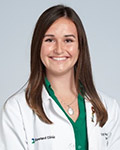
Paige Waugh, PharmD, BCPS
Pharmacy Services Coordinator, Residency Programs and Inter-professional Education
waughp@ccf.org
2020 ASHP Residency Excellence Award Recipient
We are pleased to announce the Cleveland Clinic Main Campus PGY2 Critical Care Pharmacy Residency Program has been selected as the winner of the American Society of Health System Pharmacists (ASHP) Residency Excellence Award. This award is given out annually by ASHP and recognizes a pharmacy residency program that has a national reputation for excellence in the training of residents and consistent provision of an exceptionally positive and rewarding training experience. There is an extensive application and submission process, including essays on innovation, quality, resident training environment, preceptor engagement and development, and service excellence. The award also takes into consideration the achievement record of all graduates and current program preceptors (e.g., peer-reviewed publications, national presentations, and board certification). Thank you to ASHP Foundation for the recognition.
PGY-1
PGY-1 Pharmacy Residency
The PGY1 Pharmacy residents will practice at Cleveland Clinic main campus. Required rotations are: Internal Medicine 1, Practice Management, Drug Information, Medication Safety, and Adult Critical Care. Residents will select six elective rotations from the following list: Ambulatory Care, Cardiology, Cardiology Ambulatory, Critical Care 2, Emergency Medicine, Infectious Diseases, Infectious Diseases Ambulatory, Informatics/Automation, Internal Medicine 2, Neurology, Neurology Ambulatory, Oncology, Oncology Ambulatory, General Pediatrics, Pediatrics Subspecialty, Pharmacogenomics, Practice Management 2, Psychiatry, Solid Organ Transplant, and Solid Organ Transplant Ambulatory of which one must be in an ambulatory clinic. Pharmacist preceptors are available for all rotations listed.
Residents will complete a large research project and manuscript and present at internal and external venues. Residents will complete an additional small research project (i.e. medication use evaluation) and present at an internal venue. Residents are required to staff 19 weekends per year, work two Cleveland Clinic-recognized holidays, and participate in an on-call program.
To assist with building research skills, the residents will participate in a research curriculum that takes place throughout the year. Additional research resources include a staff statistician, statistical software, and grant funding through the department of pharmacy. Residents also participate in a longitudinal pharmacy emergency response curriculum.
- PGY-1 Pharmacy Residency Program Structure.
- PGY-1 Pharmacy Residency Successful Completion Checklist.
Contact
Sarah Mersek, PharmD, BCPS
Pharmacy Residency (PGY-1) Director
Cleveland Clinic Department of Pharmacy
9500 Euclid Ave. | HB-105
Cleveland, OH 44195
Email: merseks@ccf.org
PGY-1 Community-Based Pharmacy Residency
PGY1 Community-Based residents will practice within the Cleveland Clinic Health System including regional and main campus Cleveland Clinic ambulatory pharmacies, ambulatory care clinics, specialty pharmacy, and the employee health plan. Required rotations are Community Practice, Practice Advancement & Leadership, Anticoagulation, Primary Care, Specialty Pharmacy, Employee Health Plan, HIV Ambulatory Care Clinic, Teaching and Education, and Transitional Care Management. Residents will select one elective rotation from the following list: Gastroenterology, Diabetes/Endocrinology, Travel Medicine, Regional Oncology Clinic, Geriatrics, or Rheumatology. Pharmacist preceptors are available for all rotations.
Residents will complete a teaching certificate program through Northeast Ohio Medical University (NEOMED) College of Pharmacy. Residents are required to complete a large project and manuscript, a business plan, a quality improvement small project; and a drug class review, monograph, treatment protocol, utilization management criteria, or order set. Residents will present internally at resident conference, ambulatory care monthly, and the employee health plan P&T committee, and externally at the Ohio Pharmacist Association or Ohio College of Clinical Pharmacy Spring Meeting. Financial support is provided to attend the ASHP Midyear meeting dependent on institutional travel limitations.
Residents staff every third Saturday from September through June and are assigned to work two Cleveland Clinic-recognized holidays. Additionally, residents must complete four community service activities. To assist with building research skills, residents will participate in research curriculum and skills workshops throughout the year. Additional research resources include staff statistician, statistical software, and grant funding through the department of pharmacy.
- PGY-1 Community-Based Pharmacy Residency Program Structure.
- PGY-1 Community-Based Pharmacy Residency Successful Completion Checklist.
Contact
Amy Gustafson, PharmD, BCACP
Community-Based Pharmacy Residency (PGY1) Director
Cleveland Clinic Department of Pharmacy
8701 Darrow Rd.
Twinsburg, OH 44087
Email: gustafa@ccf.org
PGY-1 Community-Based Pharmacy Residency (Specialty)
The PGY1 Community-Based Pharmacy Resident will practice at Cleveland Clinic Specialty Pharmacy on the administrative campus of Cleveland Clinic within the care coordination center, as well as select regional and main campus Cleveland Clinic ambulatory care clinics. Required rotations are: orientation, care coordination center 1/2/3 (disease states including: autoimmune/ inflammatory, cardiology, hematology, hepatology/HIV, neurology, oncology, osteoporosis), and ambulatory care clinics 1/2/3, where the resident will have an opportunity to choose from 3 different clinics (neurology, gastroenterology, rheumatology, regional oncology, HIV/PrEP, and Hepatitis C). Other required longitudinal rotations that are longitudinal include: patient-centered dispensing, practice management, projects, and teaching and education. The resident will complete a teaching certificate program through Northeast Ohio Medical University (NEOMED). Pharmacist preceptors are available for all rotations listed.
Residents will complete a research project and manuscript, business plan for a new or enhanced service, and a collaborative practice agreement, standing order, or state-based protocol. Residents will present at the following venues: resident conference, ambulatory care conference, administrative campus pharmacy service line topic discussion series, and the Ohio Pharmacists Association spring meeting. Residents are required to staff in a blocked fashion through the care coordination center learning experiences (4 days per week for 1 week at midpoint and 2 weeks at the end of the learning experience) and participate in the on-call program every month for a week in the second half of the residency year. There is no holiday staffing. Residents must complete 4 community health activities or events.
To assist with building research skills, the residents will participate in the residency research curriculum that takes place throughout the residency year. Additional research resources include staff statistician, statistical software, and grant funding through the department of pharmacy.
- PGY-1 Community-Based Specialty Pharmacy Program Structure.
- PGY-1 Community-Based Specialty Pharmacy Successful Completion Checklist.
Contact
Leighton Boquist, PharmD
Community-Based Pharmacy Residency (PGY-1) Director
Cleveland Clinic Department of Pharmacy
9500 Euclid Ave. | HB-105
Cleveland, OH 44195
Email: boquisl2@ccf.org
PGY-1/2
PGY-1/2 Health-System Pharmacy Administration and Leadership/MS Residency
The PGY-1/PGY-2 Pharmacy Administration and Leadership residency with MS in Pharmacy Leadership (offered through the University of Cincinnati) is a two-year program within the Cleveland Clinic Health System. The PGY-1-year mirrors the PGY-1 Pharmacy residency program at Cleveland Clinic main campus in terms of required and elective rotations as well as staffing requirements. Residents will have an additional management rotation to gain a firm understanding of pharmacy operations in our main pharmacy and sterile products areas. During the PGY2 year, residents will complete the following required rotations: inpatient pharmacy operations, acute care services, supply chain, finance, medication safety, formulary management, and informatics while on rotations with members of our leadership team. These rotations will provide an understanding of the changing nature of today’s complex medical delivery systems and leadership skills necessary for change management and managing the pharmacy enterprise.
Elective rotations are offered in population health, practice advancement/advocacy, 340B, specialty pharmacy, and advanced operations within our regional hospital affiliates. Residents will complete a research project during their PGY1 and PGY2 years and develop a supporting manuscript with each project. The PGY2 project also doubles as a requirement for a capstone project associated with the master’s degree. To build research skills, the residents will participate in the residency research curriculum that takes place throughout the residency year. Residents will be given the opportunity to present at local residency conferences as well as attend ASHP Summer, Leadership and Midyear meetings.
- PGY-2 Health-System Pharmacy Administration and Leadership/MS Residency Program Structure
- PGY-2 Health-System Pharmacy Administration and Leadership/MS Residency Successful Completion Checklist
Contact
Daniel Lewis, PharmD, MBA, BCPS, FASHP
Health-System Pharmacy Administration and Leadership Residency Program Director
Cleveland Clinic
Department of Pharmacy
9500 Euclid Ave. | HB-105
Cleveland, OH 44195
Email: lewisd3@ccf.org
PGY-1/2 Pharmacotherapy Residency
PGY1/2 Pharmacotherapy residents will practice at Cleveland Clinic main campus over 24 months. The PGY-1 year mirrors the Pharmacy PGY-1 residency program in terms of required and elective rotations, but the rotations are arranged in clinical blocks of two to three months, which focus on a particular area of pharmacotherapy (e.g. critical care, internal medicine, pediatrics). In the second year, more specialized blocks of clinical rotations and a longitudinal ambulatory care component are offered to build and enhance competencies acquired during the resident’s first year. Residents also have the opportunity to concentrate on a particular area of pharmacotherapy in their second year.
Residents will complete a research project, manuscript, and present at local and national venues. Residents are required to staff 19 weekends during their first year and 15 weekends during their second year, work two Cleveland Clinic-recognized holidays per year, and participate in an on-call program. To assist with building research skills, the residents will participate in research curriculum that takes place throughout the year. Additional research resources include a staff statistician, statistical software, and grant funding through the department of pharmacy. Residents also participate in a longitudinal pharmacy emergency response curriculum.
- PGY-2 Pharmacotherapy Residency Program Structure
- PGY-2 Pharmacotherapy Residency Successful Completion Checklist
Contact
Danielle Marut, PharmD, BCCCP
Pharmacotherapy Residency Director
Cleveland Clinic
Department of Pharmacy
9500 Euclid Ave. | HB-110
Cleveland, OH 44195
Email: marutd@ccf.org
PGY-2
PGY-2 Ambulatory Care Residency
The PGY2 Ambulatory Care residents will practice within the Cleveland Clinic Health-System, including hospital-based clinics on the main campus, as well as several nonhospital-based clinics within Cleveland Clinic family health centers. The pharmacist-driven ambulatory care clinics utilize consult agreements that allow pharmacists to initiate, discontinue, and modify medications for the disease states delegated by the physician or advanced practice provider. Required rotations include primary care, advanced practice primary care, anticoagulation, advanced practice anticoagulation, pharmacy administration, diabetes, geriatrics, heart failure/heart transplant, outpatient infectious disease. Residents will select 2 elective rotations from the following list: advanced practice diabetes, gastroenterology, managed care, pharmacogenomics, pharmacy leadership and strategic planning, pulmonary, rheumatology, specialty pharmacy, transplant. Pending performance and interest, residents may opt-in to complete the elective longitudinal independent practice rotation. The independent practice rotation is not required for residency completion. Pharmacist preceptors are available for all rotations listed. Additionally, direct patient care rotations have embedded pharmacists within the specialty outpatient practices. Staffing is not required for residency completion.
Residents will complete a research project, manuscript, and present at the following venues: resident conference, ambulatory care monthly, and the APPE student lecture series. To assist with building research skills, the residents will participate in the residency research curriculum that takes place throughout the residency year. Additional research resources include staff statistician, statistical software, and grant funding through the department of pharmacy. Optional Experience: Residents can choose to complete a leadership certificate through ASHP.
- PGY-2 Ambulatory Care Residency Program Structure
- PGY-2 Ambulatory Care Successful Completion Checklist
Contact
Giavanna Russo-Alvarez, PharmD, BCACP
Ambulatory Care Residency Program Director
Cleveland Clinic, Department of Pharmacy
9500 Euclid Ave. | G1-110
Cleveland, OH 44195
Email: russo-g@ccf.org
PGY-2 Cardiology Residency
The PGY2 Cardiology resident will practice within the Heart, Vascular and Thoracic Institute at Cleveland Clinic main campus. Required rotations are clinical cardiology, coronary ICU, advanced heart failure/heart transplant, CVICU, imaging, and heart failure ambulatory clinic. Residents can select at least one elective rotation such as Emergency Medicine, Pediatric Cardiology, Pulmonary Hypertension, and Vascular Medicine. Other longitudinal learning experience includes an emergency response course.
The resident will complete a research project, drug use evaluation/ quality improvement project, drug monograph and a manuscript. To assist with building research skills, the residents will participate in research curriculum throughout the year. Additional research resources include a staff statistician, statistical software, and grant funding through the department of pharmacy.
There are multiple opportunities to present in the following settings: resident conference, APPE student lecture series, Cardiology Late breaking journal club, and critical care conference. The resident will participate in the on-call program (which includes participation in stroke response), clinical staffing 15 weekends (30 eight-hour shifts), working two Cleveland Clinic-recognized holidays, as well as participation in hospital committees.
Contact
Katie Greenlee, PharmD, BCCP
Cardiology Residency Director
Cleveland Clinic, Department of Pharmacy
9500 Euclid Ave. | HB-105
Cleveland, OH 44195
Email: greenlk@ccf.org
PGY-2 Critical Care Residency
The PGY-2 Critical Care residents will practice at Cleveland Clinic main campus with an opportunity for an elective off-site trauma rotation within Cleveland Clinic. Required rotations are: medical, surgical, cardiothoracic surgery, cardiac, and neurosciences intensive care units. Residents will select several elective rotations from the following list: clinical teaching, emergency medicine, heart failure/heart transplant, infectious diseases, informatics, pediatric intensive care unit, medical intensive liver unit, neurology/stroke, oncology, transplant surgical intensive care unit, and trauma. Pharmacist preceptors are available for all rotations listed.
Residents will complete a research project, drug use evaluation/quality improvement project, manuscript, drug monograph, and present at the following venues: resident conference, APPE student lecture series, and critical care conference. Residents are required to staff 15 weekends per year, two Cleveland Clinic-recognized holidays, and participate in the on-call program. Other longitudinal learning experiences include emergency response and post- intensive care recovery clinic. To assist with building research skills, the residents will participate in research curriculum that takes place throughout the year. Additional research resources include a staff statistician, statistical software, and grant funding through the department of pharmacy.
The Cleveland Clinic Main Campus PGY2 Critical Care Pharmacy Residency Program was selected as the 2020 winner of the American Society of Health System Pharmacists (ASHP) Residency Excellence Award.
Contact
Heather Torbic, PharmD, FCCM, BCPS, BCCCP
Critical Care Residency Director
Cleveland Clinic, Department of Pharmacy
9500 Euclid Ave. | HB-105
Cleveland, OH 44195
Email: torbich@ccf.org
PGY-2 Emergency Medicine Residency
The PGY2 Emergency Medicine resident will practice primarily in the Cleveland Clinic main campus Emergency Department with an offsite trauma rotation within the Cleveland Clinic Health System and an offsite toxicology rotation. Required rotations include two emergency medicine core rotations, a trauma emergency medicine rotation, a medical intensive care unit rotation, a neurosciences intensive care unit rotation, a pediatric intensive care unit rotation, a concentrated toxicology rotation, and an advanced emergency medicine rotation.
Residents will have the opportunity to select at least one elective rotation such as: pediatric emergency medicine, coronary intensive care unit, solid organ transplant, infectious diseases, cardiothoracic intensive care unit, or immunocompromised infectious diseases. Residents will complete a research project, a drug-use evaluation, a manuscript, a drug monograph, and present at several venues including resident conference, emergency medicine journal club, ED nursing orientation, and the APPE student lecture series.
To assist with building research skills, the residents will participate in a research curriculum that takes place throughout the year. Additional research resources include a staff statistician, statistical software, and grant funding through the department of pharmacy.
Residents are required to staff 15 weekends and two Cleveland Clinic-recognized holidays per year and participate in an onsite on-call program.
- PGY-2 Emergency Medicine Residency Program Structure
- PGY-2 Emergency Medicine Successful Completion Checklist
Contact
Matt Campbell, PharmD, BCPS, BCCCP
Emergency Medicine Residency Director
Cleveland Clinic, Department of Pharmacy
9500 Euclid Ave. | HB-105
Cleveland, OH 44195
Email: campbem4@ccf.org
PGY-2 Infectious Disease Residency
The PGY2 Infectious Diseases Residency is a one-year training program within the Cleveland Clinic Health System. The residency is focused on direct patient care through infectious diseases consult services and clinic, antimicrobial stewardship, practice management, and education. Required concentrated rotations are General ID, Antimicrobial Stewardship 1 and 2, Immunocompromised ID 1 and 2, Microbiology, Endocarditis, Bone and Joint ID Consults, Neurosciences ID Consults, and Pediatric ID. Required longitudinal rotations are Human Immunodeficiency Virus (HIV)/ID Outpatient Clinic, Leadership & Formulary Management, Research, and Education/ Presentations. Residents may select from a variety of elective rotation experiences including: Community ID Practice, Intensive Care Unit ID, Advanced ID Consults, Outpatient Parenteral Antimicrobial Therapy, Travel Medicine, and Public Health. Pharmacist preceptors are available for all rotations listed.
Residents will complete a research project, a quality assurance/quality improvement project, a manuscript, a drug monograph and present at the following venues: resident conference, ID Monthly, APPE student lecture series, and the Making a Difference in Infectious Diseases (MAD-ID) conference. To assist with building research skills, the residents will participate in research curriculum that takes place throughout the year. Additional research resources include availability of a staff statistician, statistical software, and grant funding through the department of pharmacy.
Residents are required to staff 15 weekends and two Cleveland Clinic-recognized holidays per year and participate in an on-call program.
- PGY-2 Infectious Diseases Residency Program Structure
- PGY-2 Infectious Diseases Successful Completion Checklist
Contact
Kaitlyn Rivard, PharmD, BCIDP
Infectious Diseases Residency Director
Cleveland Clinic, Department of Pharmacy
9500 Euclid Ave. | HB 105, Cleveland, OH 44195
Email: rivardk@ccf.org
PGY-2 Internal Medicine Residency
The PGY2 Internal Medicine resident will practice at Cleveland Clinic main campus. Required rotations include Advanced Internal Medicine 1, Advanced Internal Medicine 2, Advanced Internal Medicine 3, Hepatology, Nephrology, and Pulmonary Medicine. Additionally, Infectious Disease and Critical Care will be required if not completed as a PGY-1 resident. Residents will select four elective rotations from the following: Ambulatory Care, Clinical Cardiology, Critical Care, Drug Information/Medication Safety, Emergency Medicine, Infectious Diseases, Neurology, Outpatient Pulmonology, and Transplant. Pharmacist preceptors are available for all rotations listed.
Residents will complete a research project, a drug use evaluation, a manuscript, and present at the following venues: Resident Conference, Internal Medicine Conference, and the APPE student lecture series. Residents are required to staff 15 weekends per year, work two Cleveland Clinic- recognized holidays, and participate in an on-call program.
Other longitudinal learning experiences include student precepting and participation in an Internal Medicine Formulary Committee. To assist with building research skills, the residents will participate in the research curriculum that takes place throughout the year. Additional research resources include a staff statistician, statistical software, and grant funding through the department of pharmacy.
- PGY-2 Internal Medicine Residency Program Structure
- PGY-2 Internal Medicine Successful Completion Checklist
Contact
Megan Ramsey, PharmD, BCPS
Internal Medicine Residency Director
Cleveland Clinic, Department of Pharmacy
9500 Euclid Ave. | HB-105
Cleveland, OH 44195
Email: ramseym4@ccf.org
PGY-2 Neurology Residency
The PGY2 Neurology resident will practice at Cleveland Clinic main campus with an opportunity for elective off-site rotations within the Cleveland Clinic Health System. The residency is focused on direct patient care through required rotations including Stroke Neurology, General Neurology, Neurosurgery, Neurosciences ICU, Epilepsy, and Advanced Stroke Neurology. The resident will have a variety of elective rotations to choose from including Trauma ICU, Neurology Infectious Disease, Inpatient Psychiatry, and Emergency Medicine. This program will be customizable to the resident's goals and interests.
The resident will complete a research project, drug use evaluation/quality improvement project, manuscript, and drug monograph. To support building the resident’s research skills, the resident will participate in a research curriculum that takes place throughout the year.
Additional research resources include availability of a staff statistician, statistical software, and grant funding through the department of pharmacy. The resident will have opportunities to provide formal presentations at resident conference and neurology pharmacy conference. The resident will partake in the on-call program, clinical staffing (15 weekends), and work two Cleveland Clinic recognized holidays. Additional longitudinal learning experiences include leadership, inpatient stroke response, and participation in hospital committees.
Contact
Grace Conroy, PharmD, BCCCP
Neurology Residency Director
Cleveland Clinic, Department of Pharmacy
9500 Euclid Ave. | HB-105
Cleveland, Ohio 44195
Email: conroyg2@ccf.org
PGY-2 Oncology Residency
The PGY2 Oncology resident will practice at Cleveland Clinic main campus. Required patient care experiences include leukemia, blood and marrow transplantation, pediatric hematology and oncology, and lymphoma and myeloma, and a variety of solid tumor oncology rotations including breast, lung, and gastrointestinal as well as immunocompromised infectious diseases. Residents’ direct patient care time will be split inpatient and outpatient. Required non-direct patient care experiences include oncology leadership and management, investigational drug services, and chemotherapy operations. Elective rotations include - inpatient solid tumor oncology, oncology informatics, pediatric blood and marrow transplantation, and many others. Residents will complete a research project, medication-use evaluation or quality project, and a drug monograph. Additionally, they will participate in the formulary management process, chemotherapy protocol validations, and present at resident conference, weekly oncology disease state and therapeutics discussions.
To build research skills, the residents will participate in a research curriculum that takes place throughout the year. Research resources include a staff statistician, statistical software, and grant funding through the department of pharmacy. Residents are required to staff 15 weekends per year, work two Cleveland Clinic- recognized holidays, and participate in an on-call program.
Contact
Catherine Pierson, PharmD, BCOP
Oncology Residency Director
Cleveland Clinic, Department of Pharmacy
9500 Euclid Ave. | HB-105
Cleveland, OH 44195
Email: rennac@ccf.org
PGY-2 Pediatric Pharmacy Residency
The PGY-2 Pediatric Residency is a one-year training program within the Cleveland Clinic Health System. Our residents train under the supervision of experienced clinical pharmacists in the care of infants, toddlers, children and adolescents. Our program is focused on direct patient care, practice management, and education of healthcare providers, patients and caregivers.
Cleveland Clinic Children’s is a 120-bed pediatric hospital on the Cleveland Clinic main campus. PGY-2 Pediatric Residents will be exposed to a broad range of experiences and activities intended to build the skills necessary to practice independently. Areas of focus are general pediatrics, pediatric intensive care, and neonatology, with additional experiences available in pediatric infectious diseases, hematology/oncology and cardiology. The resident can choose from a number of elective rotations to build and enhance competencies. In addition, the resident will conduct a year-long research project and present the results at the PPA annual conference as well as prepare a manuscript for publication. Presentation skills will be enhanced by giving formal presentations throughout the year. Additional requirements are participation in hospital committees and inpatient staffing in the pediatric pharmacy satellite.
- PGY-2 Pediatric Pharmacy Residency Program Structure
- PGY-2 Pediatric Pharmacy Successful Completion Checklist
Contact
Danielle Renee Thomas, PharmD, BCPPS
Pediatric Pharmacy Residency Director
Cleveland Clinic, Department of Pharmacy
9500 Euclid Ave. | HB-105
Cleveland, OH 44195
Email: thomasd34@ccf.org
PGY-2 Clinical Pharmacogenomics Residency
The PGY2 Clinical Pharmacogenomics resident will practice within the Cleveland Clinic Health System, including hospital-based clinics on main campus. One example is the embedded pharmacogenomics clinic in the Center for Geriatric Medicine that utilizes a consult agreement to allow pharmacists to initiate pharmacogenomics testing, provide interpretations and pharmacogenomics-based recommendations.
Required rotations are clinical pharmacogenomics 1-4, ambulatory care clinic, ambulatory care specialty clinic, and drug information center. Elective opportunities are available in specialty-focused areas including oncology, pediatrics, pharmacy informatics, psychiatry and transplant. Pharmacist preceptors are available for all rotations listed. Residents will complete a research project, a medication-use evaluation or quality improvement project, manuscript, a drug monograph and present at the resident conference, APPE student lecture series, ambulatory care monthly, and the Ohio College of Clinical Pharmacy spring meeting.
Residents are required to staff 15 weekends, work two Cleveland Clinic-recognized holidays, and participate in an on-call program. To assist with building research skills, the residents will participate in research curriculum that takes place throughout the year. Additional research resources include a staff statistician, statistical software, and grant funding through the Department of Pharmacy.
- PGY-2 Clinical Pharmacogenomics Residency Program Structure
- PGY-2 Clinical Pharmacogenomics Successful Completion Checklist
Contact
Jennifer Hockings, PharmD, PhD, BCPS
Cleveland Clinic, Department of Pharmacy
9500 Euclid Ave. | HB-105
Cleveland, Ohio 44195
Email: hockinc@ccf.org
PGY-2 Pharmacy Informatics Residency
The PGY2 Pharmacy Informatics residency offers the opportunity to practice supporting medication use technologies across the Cleveland Clinic Health System. Required rotations include Automation & Technology, Orders Management, Reporting & Analytics, Clinical Decision Support, Informatics Theory, Informatics Leadership, and Student Precepting. Elective opportunities are available in specialty-focused areas including Oncology Informatics, Ambulatory Informatics, Antimicrobial Stewardship, and Order Set Management.
The resident will complete a longitudinal research project that will involve implementation of new technology or optimization of existing technology within the electronic health record or automation systems. The resident will also complete a smaller research project that involves the evaluation of an existing feature within the electronic health record. Residents will also develop a manuscript based on one of the two research projects. Informatics residents will also have the opportunity to deliver presentations at the resident conference and the APPE student lecture series.
To assist with building research skills, the residents will participate in research curriculum that takes place throughout the year. Additional research resources include a staff statistician, statistical software, and grant funding through the department of pharmacy.
The Pharmacy Informatics residency also provides the opportunity for the resident to earn a credential in the use of the medication management application in the electronic health record.
- PGY-2 Pharmacy Informatics Residency Program Structure
- PGY-2 Pharmacy Informatics Successful Completion Checklist
Contact
Marc Willner, PharmD
Pharmacy Informatics Residency Director
Cleveland Clinic, Department of Pharmacy
9500 Euclid Ave. | JJN1-200
Cleveland, OH 44195
Email: willnem@ccf.org
PGY-2 Solid Organ Transplant Residency
The PGY2 Solid Organ Transplant residency is a one-year training program, and the resident will practice at Cleveland Clinic main campus. Required rotations are kidney transplant, liver transplant, heart failure/transplant, lung transplant, outpatient transplant, immunocompromised infectious diseases, and transplant independent practice. Residents have the option to select several elective rotations from pediatric transplant, intestinal transplant, cardiothoracic ICU, surgical ICU, and medical ICU. Pharmacist preceptors are available for all rotations listed.
Residents will complete a research project, a drug-use evaluation/quality improvement project, manuscript, drug monograph, and present at resident conference, quarterly transplant journal club, and APPE student lecture series. Residents are required to staff 15 weekends per year, work two Cleveland Clinic-recognized holidays, and participate in an on-call program. To assist with building research skills, the residents will participate in research curriculum that takes place throughout the year. Additional research resources include a staff statistician, statistical software, and grant funding through the department of pharmacy.
- PGY-2 Solid Organ Transplant Residency Program Structure
- PGY-2 Solid Organ Transplant Successful Completion Checklist
Contact
Katie Rudzik, PharmD, BCTXP
Solid Organ Transplant Residency Director
Cleveland Clinic, Department of Pharmacy
9500 Euclid Ave. | HB-105
Cleveland, OH 44195
Email: rudzikk@ccf.org
Residents
2025-2026 Pharmacy Residents
PGY-1 residents

Nada Arthur
PharmD
- Program: PGY-1 Pharmacy
- Email: arthurn@ccf.org
- Education: Virginia Commonwealth University
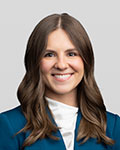
Caroline Cyranek
PharmD
- Program: PGY-1 Pharmacy
- Email: cyranec2@ccf.org
- Education: The Ohio State University
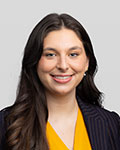
Hunter DiCristina
PharmD
- Program: PGY-1 Pharmacy
- Email: dicrish@ccf.org
- Education: Duquesne University
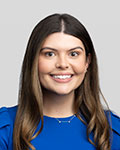
Madison Kearns
PharmD
- Program: PGY-1 Pharmacy
- Email: kearnsm2@ccf.org
- Education: The Ohio State University
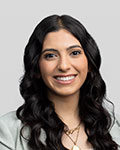
Sareen Mustafa
PharmD
- Program: PGY-1 Pharmacy
- Email: mustafs7@ccf.org
- Education: Lake Erie College of Osteopathic Medicine
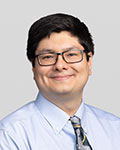
Arden Powell
PharmD
- Program: PGY-1 Pharmacy
- Email: powella16@ccf.org
- Education: University of North Texas Health Science Center
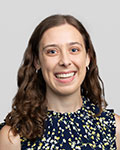
Caitlin Esteves
PharmD
- Program: PGY-1 Community-Based Pharmacy
- Email: estevec@ccf.org
- Education: University of Pittsburgh
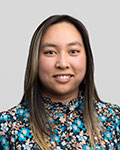
Lan Nguyen
PharmD
- Program: PGY-1 Community-Based Pharmacy
- Email: nguyenl9@ccf.org
- Education: The Ohio State University

Janany Jeyakumar
PharmD
- Program: PGY-1 Community-Based at Specialty Pharmacy
- Email: jeyakuj@ccf.org
- Education: Albany College of Pharmacy and Health Sciences
PGY-1/2 residents
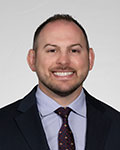
Michael Carlone
PharmD, MS
- Program: PGY 1/2 Health-System Pharmacy Administration and Leadership
- Email: carlonm@ccf.org
- Education: Northeast Ohio Medical University
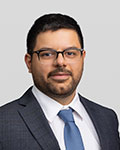
Gaith Hajeh
PharmD
- Program: PGY 1/2 Health-System Pharmacy Administration and Leadership
- Email: hajehg@ccf.org
- Education: University of North Carolina
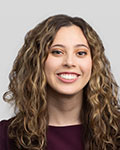
Anneliese Harp
PharmD
- Program: PGY 1/2 Health-System Pharmacy Administration and Leadership
- Email: harpa2@ccf.org
- Education: University of Pittsburgh
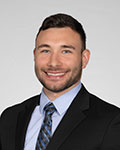
Trevor Rice
PharmD
- Program: PGY 1/2 Health-System Pharmacy Administration and Leadership
- Email: ricet15@ccf.org
- Education: Ohio Northern University

Joseph Cherian
PharmD
- Program: PGY 1/2 Pharmacotherapy
- Email: cheriaj2@ccf.org
- Education: University of Toledo
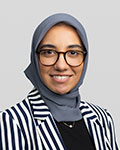
Yasmeen Hamza
PharmD
- Program: PGY- 1/2 Pharmacotherapy
- Email: hamzay2@ccf.org
- Education: The Ohio State University

Marianne Said
PharmD
- Program: PGY 1/2 Pharmacotherapy
- Email: saidm2@ccf.org
- Education: University of Iowa
PGY-2 residents

Nikhita Garapati
PharmD
- Program: PGY-2 Ambulatory Care
- Email: garapan@ccf.org
- Education: The Ohio State University
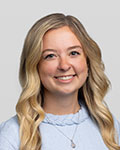
Katherine Hammaker
PharmD, BS
- Program: PGY-2 Cardiology
- Email: coteyr@ccf.org
- Education: Midwestern University

Nour Khankan
PharmD
- Program: PGY-2 Critical Care
- Email: khankan@ccf.org
- Education: Midwestern University - Downers Grove IL
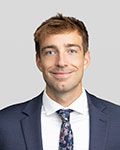
Benjamin Meola
PharmD
- Program: PGY-2 Critical Care
- Email: meolab5@ccf.org
- Education: Duquesne University
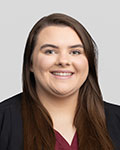
Lauren Astin
PharmD
- Program: PGY-2 Emergency Medicine
- Email: astinl@ccf.org
- Education: University of Utah
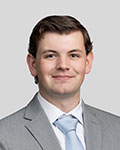
Jack Dykema
PharmD
- Program: PGY-2 Infectious diseases
- Email: dykemaj@ccf.org
- Education: University of Iowa College of Pharmacy
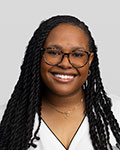
Gabrielle Hopkins
PharmD, MSHI
- Program: PGY-2 Informatics
- Email: hopkinsg3@ccf.org
- Education: Nova Southeastern University
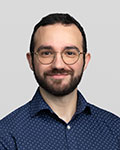
Dorjan Jeka
PharmD
- Program: PGY-2 Informatics
- Email: lekad@ccf.org
- Education: Virginia Commonwealth University
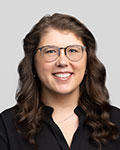
Jacquelyn De Guire
PharmD
- Program: PGY-2 Internal Medicine
- Email: deguirj@ccf.org
- Education: Concordia University Wisconsin
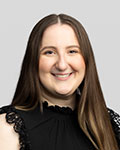
Emily Dickens
PharmD
- Program: PGY-2 Neurology
- Email: dickene5@ccf.org
- Education: University of Toledo
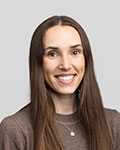
Haley Welch
PharmD
- Program: PGY-2 Oncology
- Email: welchh3@ccf.org
- Education: The University of Arizona
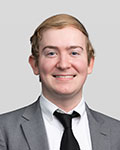
Alec Wisner
PharmD
- Program: PGY-2 Oncology
- Email: wisnera@ccf.org
- Education: University of North Carolina Eshelman School of Pharmacy
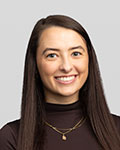
Alexyss Guy
PharmD
- Program: PGY-2 Pediatrics
- Email: guya5@ccf.org
- Education: The Ohio State University

Merrin Manalel
PharmD
- Program: PGY-2 Pediatrics
- Email: manalem@ccf.org
- Education: University of Texas at Austin

Priscilla Carranza
PharmD
- Program: PGY-2 Solid Organ Transplant
- Email: carranp@ccf.org
- Education: University of Illinois at Chicago
Preceptors
 |
Christine Ahrens, PharmD, BCCCP
|
 |
Mohamed Amar, PharmD, BCPS, BCCP
|
 |
Lindsey Amerine, PharmD, MS, BCPS, CPEL, FASHP, FHOPA
|
 |
Kevin Amoline, RPh
|
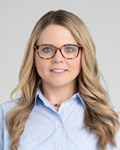 |
Amanda Anderson, PharmD, BCMTMS
|
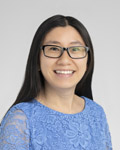 |
Bethany Anderson, PharmD
|
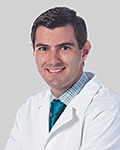
|
Keith Anderson, PharmD, BCCP
|
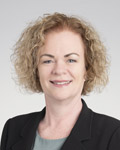
|
Judy Ashe, PharmD, MBA, BCSCP
|

|
Jennifer Ballman, PharmD, BCPS
|
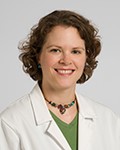
|
Julie Barnes, PharmD, BCPS
|
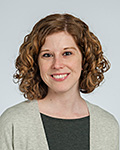
|
Stephanie Bass, PharmD, FCCP, BCPS, BCCCP
|
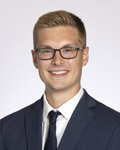
|
Kyle Beck, PharmD, MS
|

|
Danielle Beltz, PharmD, BCPS, CSP, MSCS, MBA
|
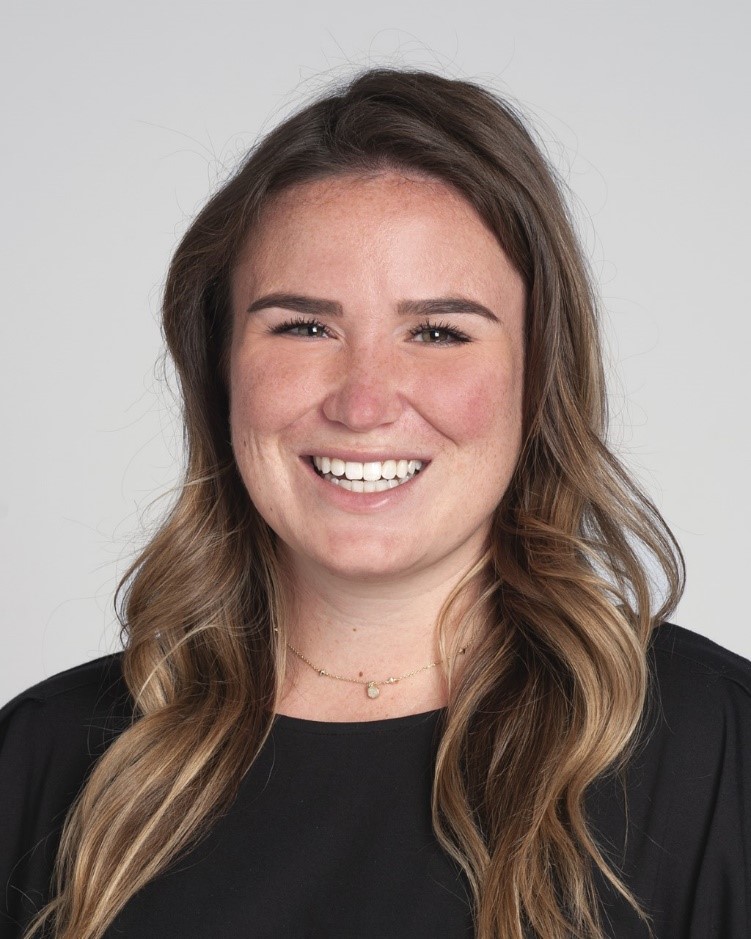
|
Megan D. Bereda, PharmD, BCPS
|
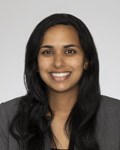
|
Shubha Bhat, PharmD, MS, FCCP, BCACP
|
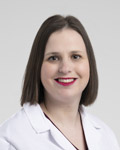
|
Katherine Blazek
|
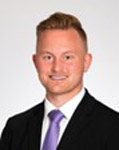 |
Mitchell Blewett, PharmD, MS, BCPS, BCOP
|
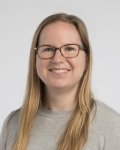
|
Andrea Blum, PharmD, BCPPS
|
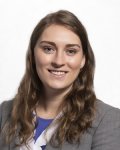
|
Sarah Bonar, PharmD, MBA, BCPS
|
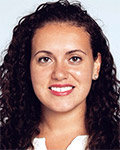
|
Anna Bondar, PharmD, BCPS
|
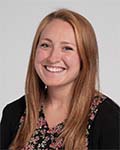
|
Leighton Boquist, PharmD
|
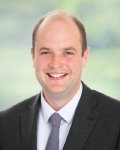
|
Anthony Boyd, PharmD, RPh, BCPS
|
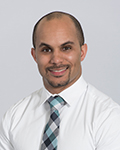
|
Ramone Boyd, PharmD, MBA, RPh
|
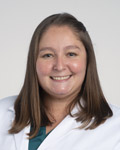
|
Allie Brant, PharmD, BCPS, MS, RPh
|

|
Matthew Brignola, PharmD, BCOP
|

|
Monika Brodman, PharmD, BCACP, CDCES
|
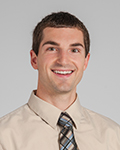
|
Ryan David Brodman, PharmD, BCACP
|
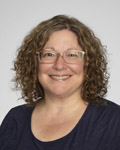
|
Laurel Brown, PharmD, BCPS, BCPPS
|
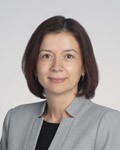
|
Alina Bulgar-Grozav, PharmD, PhD, CJCP
|

|
Matt Campbell, PharmD, BCPS, BCEMP
|
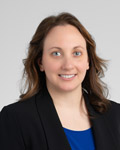
|
Rachel Carroll, PharmD, MS
|
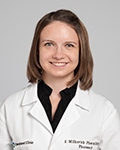
|
Sarah (Milkovich) Carroll, PharmD, BCACP
|
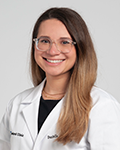
|
Danielle Cenin, PharmD, BCOP
|
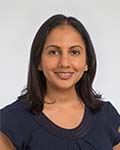
|
Pooja Cerrato, PharmD, BCPS
|
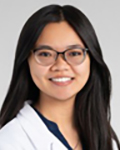 |
Tiffany Chan, PharmD, BCOP
|
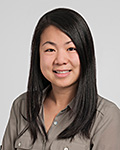
|
Alyssa Chen, PharmD, BCPS, BCCCP
|

|
Emily Chheng, PharmD, BCOP
|
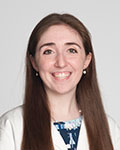
|
Stephanie Ciapala, PharmD, BCCCP
|
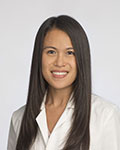
|
Jennifer Clifton, PharmD, BCPS, BCIDP
|
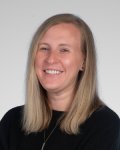
|
Ashley Coccarelli, PharmD, BCPS
|
 |
Sara Compani, PharmD, BScPharm
|
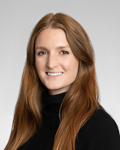
|
Grace Conroy, PharmD, BCCCP
|
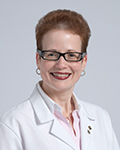
|
Marigel Constantiner, RPh, MSc, BCPS, CGP, CPh
|
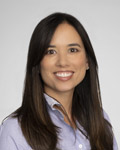
|
Annie Crissinger, PharmD, RPh
|
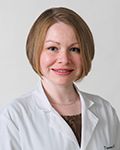
|
Cari Cristiani, PharmD, BCPS, BCACP
|
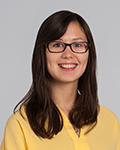
|
Elizabeth Dahl, PharmD, BCOP
|
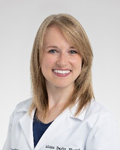
|
Alaina Darby, PharmD, MHIIM, BCPS
|
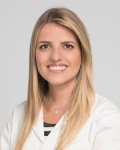
|
Keti Dubow, PharmD, BCACP
|

|
Kyla Dunning, PharmD
|
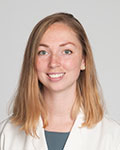
|
Kara (Sosinski) Eastman, PharmD
|
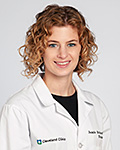
|
Jamie Eckardt, PharmD, BCPS, BCTXP
|
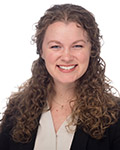
|
Jessi Edwards, PharmD, BCOP
|
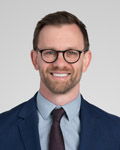
|
Garrett Eggers, PharmD, MS
|
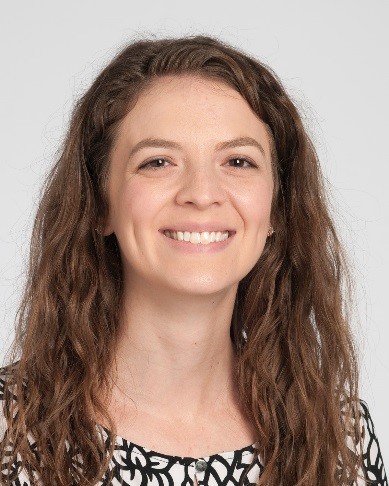
|
Gina Elder, PharmD, BCPS, BCGP
|
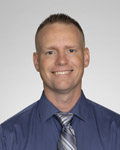
|
Craig Elrod, PharmD
|
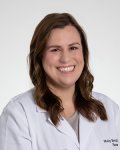
|
Molly Esordi, PharmD, BCPPS
|
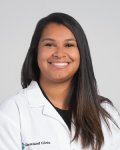
|
Alicia Faggioli, PharmD, BCPS
|
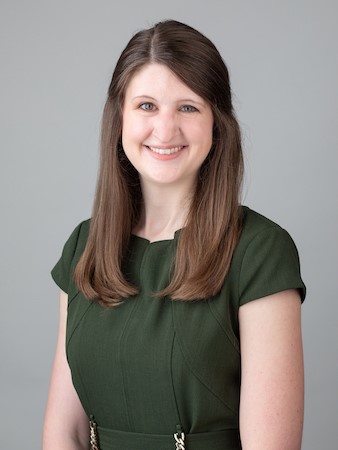
|
Julianne Fallon, PharmD, BCCP
|
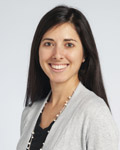
|
Emily Fargo, PharmD, BCPS
|
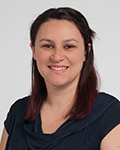
|
Marina Feldman, PharmD, BCCCP
|
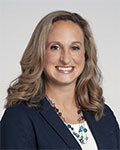
|
Jerilynn Folino PharmD, BCPS
|
 |
Courtney Fornwald, PharmD, BCACP
|
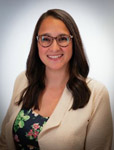
|
Becky Freedman, PharmD, RPh
|
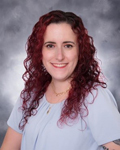 |
Julia Galea, BS, PharmD, BCPS, BC-ADM
|
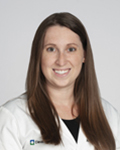
|
Abby Gallagher, PharmD, MHSA, BCPS
|
 |
Emily N. Gastro, PharmD
|
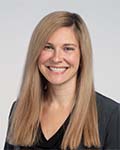
|
Kristel Geyer, PharmD, BCPS, BCOP
|

|
Rachel Gilmore, PharmD, BCOP
|
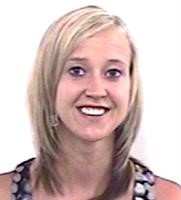
|
Anna Grabowski, PharmD, BCPS
|
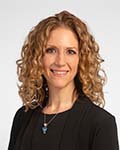
|
Katie Greenlee, PharmD, BCCP
|
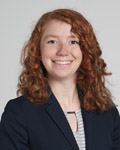
|
Nicole Guist, PharmD
|
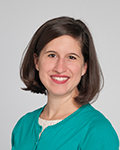
|
Amy Gustafson, PharmD, BCACP
|
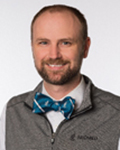 |
Kyle Gustafson, PharmD, BCCCP
|

|
Dylan Hanna, PharmD, BCCCP
|

|
Amanda C. Hansen, PharmD, MHA, FACHE, FASHP, CPC
|
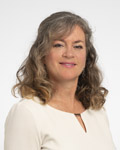
|
Erika Harrington, RPh
|

|
Eric Herber, PharmD, BCACP
|
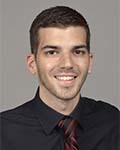
|
Nicholas Herbst, PharmD, BCPS, BCEMP
|
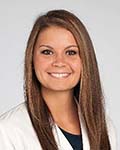
|
Taylor Hermiller, PharmD, BCACP
|
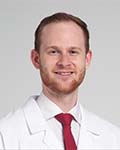
|
McKay Herpel, PharmD, BCOP
|
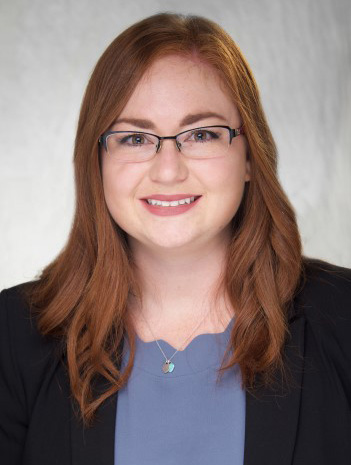
|
Alexandria Hesketh, PharmD, MSHI
|
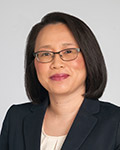
|
Jennifer Hockings, PharmD, PhD, BCPS
|
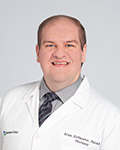
|
Brian S. Hoffmaster, PharmD, MBA, MS, BCPS
|
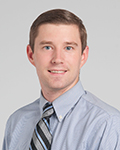
|
Benjamin Hohlfelder, PharmD, BCCCP, BCPS
|
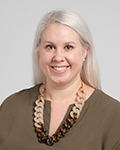
|
Jessica Hoover, PharmD, BCPPS
|
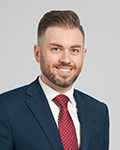
|
Matthew Hoover, PharmD, MS, MBA, BCCCP, BCPS
|
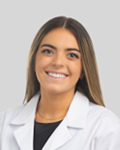 |
Logan Hunkus, PharmD
|
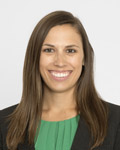
|
Ellen Immler, PharmD, BCCCP
|
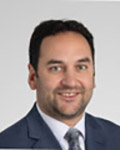
|
Justin Jakab, PharmD, MBA
|
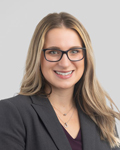 |
Megan L. James, PharmD, BCOP
|
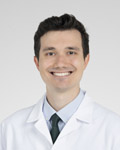
|
Jack Janosik, PharmD, BCACP
|
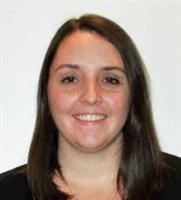
|
Courtney Jantz, PharmD, BCPS
|
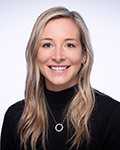
|
Audrey J. Jones, PharmD, MBA, BCCCP
|

|
Heather Jones, PharmD, MS
|

|
Morgan L Jones, PharmD, MS, BCACP
|

|
Morgan M. Jones, PharmD, BCPPS
|
 |
Anne Juarez, PharmD, BCPPS
|
 |
Courtney A. Kain, PharmD, MHA, BCPPS
|
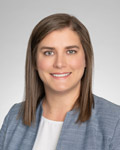
|
Sara W. Kase, PharmD, MS
|
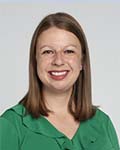
|
Kristine Keaton, PharmD, BCACP
|
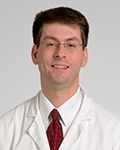
|
Jeffrey M. Ketz, PharmD, BCPS
|
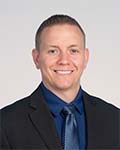
|
Andrew Kill, PharmD
|
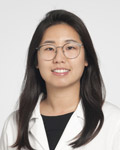
|
Chungyun (Christina) Kim, PharmD, BCIDP
|
 |
Yena Kim, PharmD
|
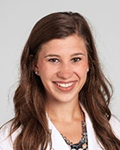
|
Katie Kish, PharmD, BCACP
|
 |
Jonathan (Jack) Kissam, PharmD, BCOP
|
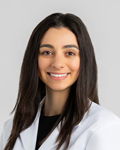 |
Taylor Koukounas, PharmD, BCPPS
|

|
Amruth Krishnamurthy, PharmD
|

|
Kevin Krivanek, PharmD, BCPS
|
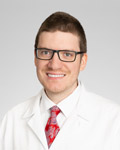
|
Sean Krohn, PharmD, MSCS, CSP
|
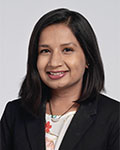
|
Heena Kurish, PharmD, BCOP
|
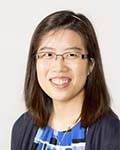
|
Mary La, PharmD, BCCCP
|
 |
Anita A. Lammers, PharmD, BCOP
|
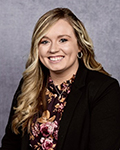 |
Ashly Lamosek, PharmD
|
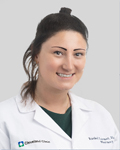 |
Rachel Larmer, PharmD, MBA
|
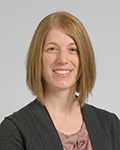
|
Meghan K. Lehmann, PharmD, BCPS
|
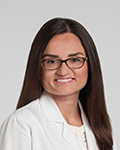
|
Sanela Lekic, PharmD, BCACP
|
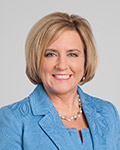
|
Mandy C. Leonard, PharmD, BCPS
|
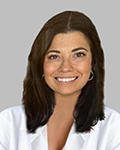
|
Traci Leuschen, PharmD, BCGP
|
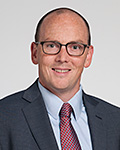
|
Daniel Lewis, PharmD, MBA, BCPS
|
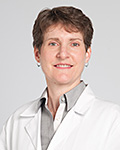
|
Cheryl Lober, PharmD
|
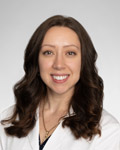
|
Ashley Kasper Lochman, PharmD, BCCP
|
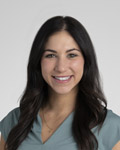
|
Dominique Loparo, PharmD, BCPS
|
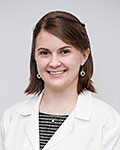
|
Samantha Spencer (Loutzenheiser), PharmD, BCPS
|
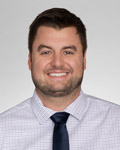
|
Jack Lukas, PharmD, BCCCP
|
 |
Josh Maline, PharmD, BCPP
|
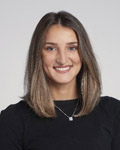
|
Serena Magni, PharmD, BCPS
|
 |
Tamela Magnusen, PharmD
|
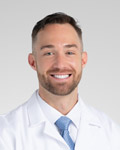
|
Kevin Malloy, PharmD, BCPS, CDCES
|
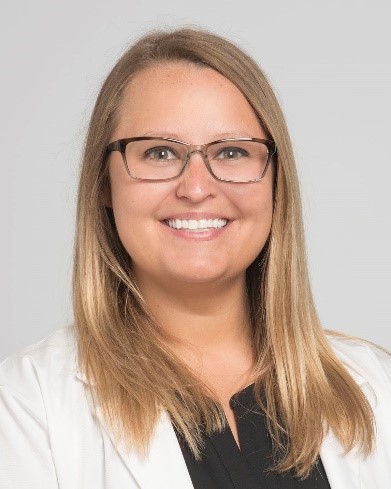
|
Katrina Mann, PharmD, BCPS
|
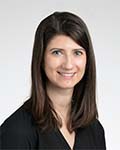
|
Olivia Marchionda, PharmD, BCCCP
|
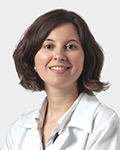
|
Amy Martin, PharmD, BCPS
|
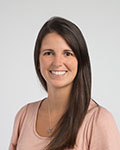
|
Danielle Marut, PharmD, BCCCP
|
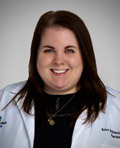
|
Erica McDonald, PharmD, BCPPS
|

|
Emily McElhaney, PharmD, BCCP
|
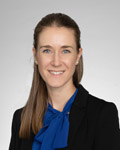
|
Sarah Mersek, PharmD, BCPS
|
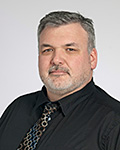
|
Michael Militello, PharmD, BCPS
|
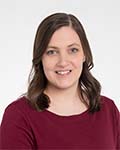
|
Bethany Mocas, PharmD, BCCCP
|
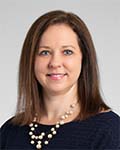
|
Emily Molnar, PharmD
|

|
James Montgomery, PharmD, BCACP
|
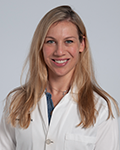
|
Casey Moore, PharmD
|
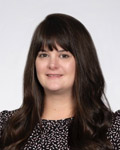
|
Chanda Mullen, PhD
|

|
Kushal Naik, PharmD, BCCP, MBA
|
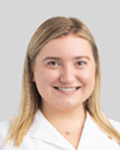 |
Haley Nelson, PharmD
|
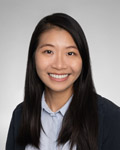
|
Susan Ngo, PharmD
|
 |
Emma Baker Nine, PharmD, BCPS
|
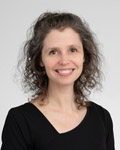
|
Andrea Pallotta, PharmD, BCPS, BCIDP, AAHIVP
|
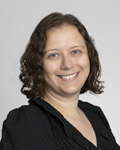
|
Nicole Palm, PharmD, FCCM, BCCCP
|
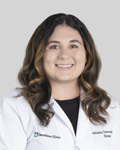
|
Antonietta Paneccasio, PharmD, BCACP
|
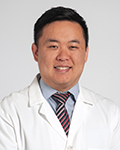
|
Bob Pang, PharmD
|

|
Marcie Parker, PharmD, BCACP
|
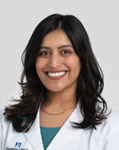
|
Chandni Patel, PharmD, BCPPS
|

|
James Payne, PharmD, BCPS
|

|
Catherine Pierson, PharmD, BCOP
|
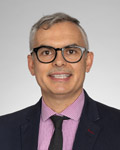
|
David Popa, PharmD, BCPS
|
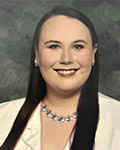
|
Sarah Pruett, RPh, PharmD, CACP
|

|
Megan Ramsey, PharmD, BCPS
|
 |
Jessica Reno, BSN, PharmD, MEDSURG-BC, BCPS
|
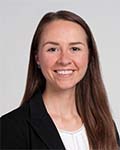
|
Mikhaila Rice, PharmD, BCPS, BCOP
|
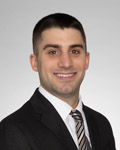
|
Andrew Rich, PharmD
|
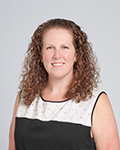
|
Kaitlyn Rivard, PharmD, BCIDP
|
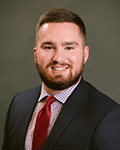
|
Anthony Ross, PharmD, BCPS, BCCP
|
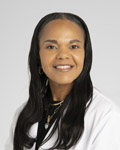
|
LaToya Ross, RPh, MS
|

|
Joslyn Rudoni, PharmD, BCOP
|
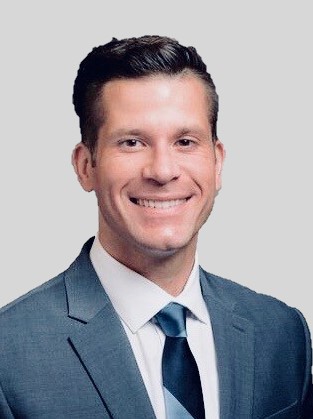
|
Michael Rudoni, PharmD, BCPS, BCCCP, FCCM
|
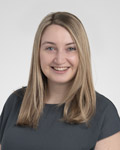
|
Katelyn Rudzik, PharmD, BCTXP
|
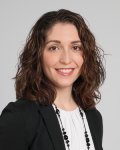
|
Giavanna Russo-Alvarez, PharmD, BCACP
|
 |
Thomas Rust, PharmD
|

|
Gretchen Sacha, PharmD, RPh, BCCCP
|
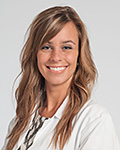
|
Lauren Schulz, PharmD, BCACP
|
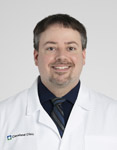
|
Michael Seabright, PharmD, BCOP
|
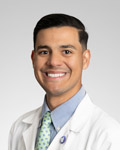
|
Brett Sharpe, PharmD, BCPS
|
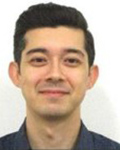
|
Hamid Sheikhi, PharmD
|
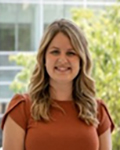 |
Carson Shoemaker, PharmD, BCTXP
|
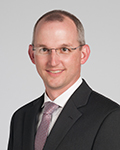
|
Matthew Soder, R.Ph.
|
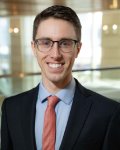
|
Brent Sokola, PharmD, MS, BCPS
|
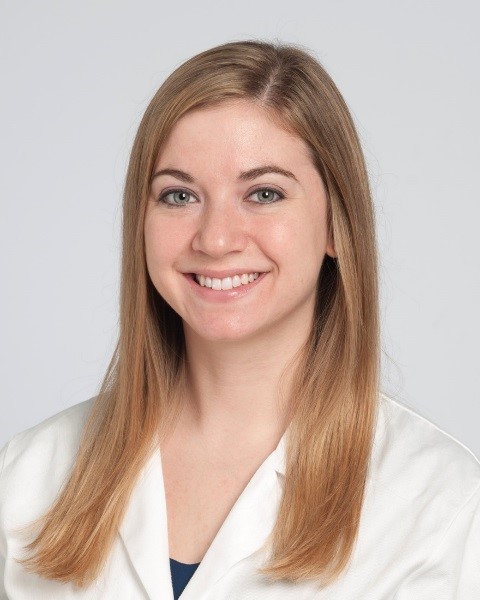
|
Amanda Soric, PharmD, BCACP, CTTS
|
 |
Danielle Spiccia, PharmD, MS
|
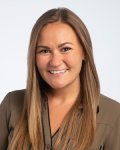
|
Elisa Stanger, PharmD, BCACP
|

|
Joshua Stevens, PharmD, BCPS
|
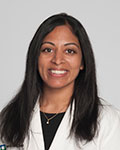
|
Sowmya Takkellapati, PharmD, BCOP
|
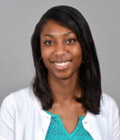
|
Danielle Renee Thomas, PharmD, BCPPS
|
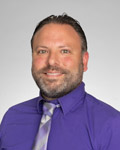
|
David Tietz, PharmD, BCPS
|
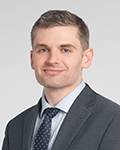
|
Tyler Tomasek, PharmD, MS, BCPS
|

|
Heather Torbic, PharmD, FCCM, BCCCP, BCPS
|
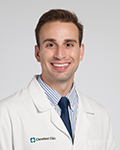
|
Neil Turco, PharmD, BCPS
|
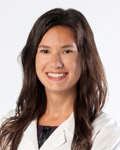
|
Theresa Urban, PharmD, BCOP
|
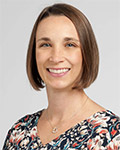
|
Kelly Vilt, PharmD, BCPS
|
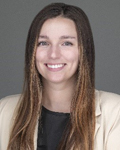 |
Megan Vince, PharmD, BCOP
|
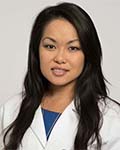
|
Ngoc (Kathy) Vo, MA, PharmD, BCPS
|
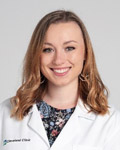
|
Alayna Wagner, PharmD, BCACP
|
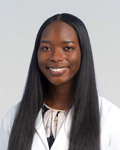
|
Ramara E. Walker, PharmD, BCIDP, AAHIVP
|
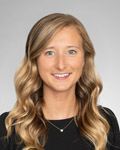
|
Madison Walling, PharmD, BCOP
|
 |
John Wallis, PharmD
|
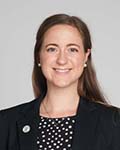
|
Jessica Ward, PharmD, BCCCP
|
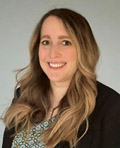
|
Taylor Watson, PharmD
|
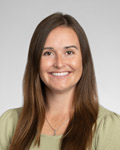
|
Paige Waugh, PharmD, BCPS
|
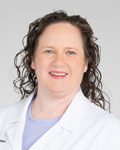
|
Elizabeth Wells, PharmD, BCPS
|

|
Jessica Wesolek, PharmD, BCPS
|

|
Jill Wesolowski, PharmD
|
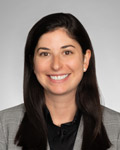
|
Allyson Wexler, PharmD, MBA, BCCCP
|
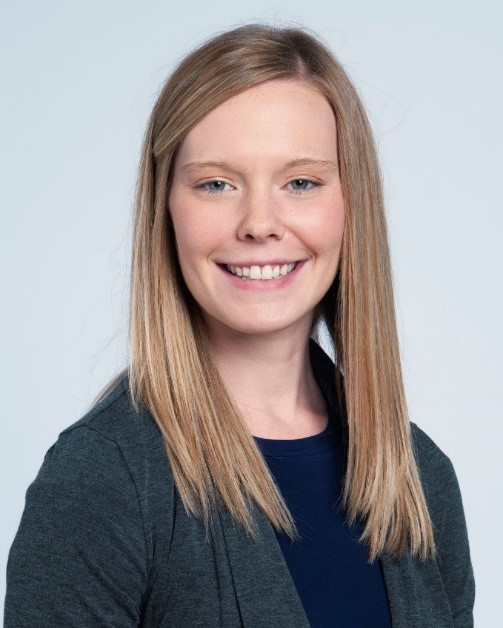
|
Lindsey Wiegmann, PharmD, BCACP
|

|
Brad Williams, PharmD, BCPS
|
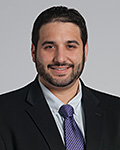
|
Marc Willner, PharmD
|
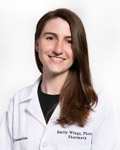
|
Emily Wings, PharmD, BCIDP
|
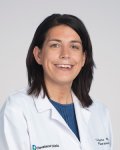
|
Celeste Wise, PharmD, BCPS, BCCCP
|
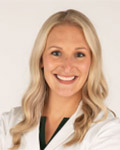
|
Kayla (Chonko) Woicehovich, PharmD, BCACP
|
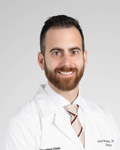
|
Aaron Woodman, PharmD
|
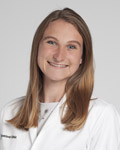
|
Nicole Woodrich, PharmD, BCPS
|
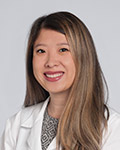
|
Janet Wu, PharmD, BCIDP
|
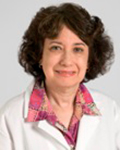
|
Marcia Wyman, PharmD, BCPS
|
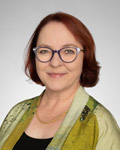
|
Angela W. Yaniv, PharmD, BCSCP
|
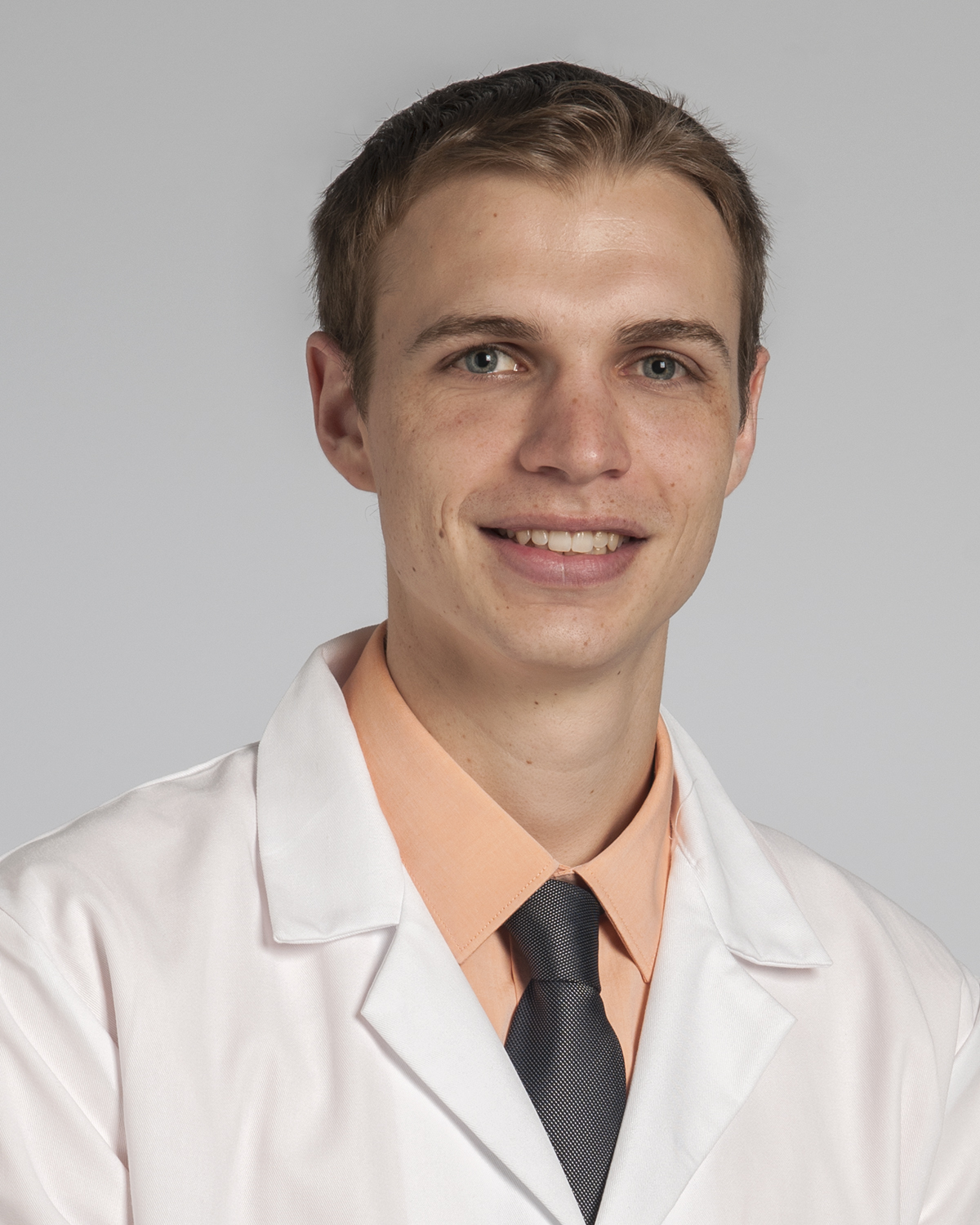
|
Jason Yerke, PharmD, BCCCP
|
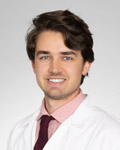
|
Ryan J. Zabrosky, Pharm.D. BCPS
|
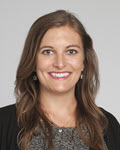
|
Elizabeth Zeleznikar, PharmD, BCACP
|
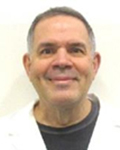
|
Peter Zervopoulos PharmD, BCPS, BCCCP
|
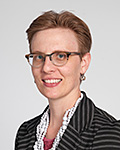
|
Andrea Zuckerman, PharmD, BCPPS
|
Admission Requirements
PGY-1 Programs
Interested applicants must be PharmD graduates of accredited college of pharmacy, be eligible for licensure in the state of Ohio (or Florida if applicable), and submit the standard application materials through PhORCAS (i.e. letter of Intent, CV, the three standard reference forms in PhORCAS, official college transcripts), along with:
- We request a minimum of one (two is preferred) of your three references should come from a preceptor who you have worked with in a clinical setting, related to an APPE in acute or ambulatory care. The clinical preceptor should be able to comment on your scope of responsibility, total patient load, level of autonomy, clinical abilities, and organizational and time management skills. All three reference writers should use the standard PhORCAS template to submit their candidate recommendation.
PGY-2 Programs
Interested applicants must be PharmD graduates of accredited college of pharmacy, be eligible for licensure in the state of Ohio (or Florida if applicable), and submit the standard application materials through PhORCAS (i.e. letter of Intent, CV, the three standard reference forms in PhORCAS, official college transcripts), along with:
- We request a minimum of one (two is preferred) of your three references should come from a preceptor who you have worked with in a clinical setting, related to a PGY-1 rotation in acute or ambulatory care. The clinical preceptor should be able to comment on your scope of responsibility, total patient load, level of autonomy, clinical abilities, and organizational and time management skills. All three reference writers should use the standard PhORCAS template to submit their candidate recommendation.
Please submit all application materials via Pharmacy Online Residency Centralized Application Service (PhORCAS).
Deadline for receipt of these materials to be considered for an on-site interview is January 2, 2026 by 11:59 p.m.
For the PGY-2 residency programs (Ambulatory Care, Cardiology, Critical Care, Emergency Medicine, Infectious Diseases, Informatics, Internal Medicine, Neurology, Oncology, Pediatrics, Pharmacogenomics, and Solid Organ Transplant), a Pharmacy (PGY-1) Residency is required.
Cleveland Clinic Health-System Residency sites agree that no person at these sites will solicit, accept, or use any ranking-related information from any residency applicant.
Please note: Residency applicants must be authorized for employment in the United States at the time they apply for the residency. Cleveland Clinic Pharmacy does not sponsor applicants for work visas.
Appointments of applicants to residency positions are contingent upon the applicants satisfying certain eligibility requirements [e.g., graduating from accredited college of pharmacy, obtaining pharmacist license in Ohio (for Ohio sites) or Florida (for Florida sites) within 90 days of start date, and successful completion of a pre-employment physical and drug screen, including testing for cotinine and attendance of an onboarding appointment on-site at main campus in Ohio (or a Florida site for Florida programs only) or as otherwise directed by Occupational Health at least 2 weeks prior to the resident's start date].
Unfortunately, we cannot accommodate OPT (Optional Practical Training) Visas for the Cleveland Clinic Pharmacy Residency Program as the program extends beyond 12 months. TN (Trade NAFTA) Visas are acceptable; however, the candidate is responsible for the application process and all necessary fees. Cleveland Clinic cannot extend the candidate an employment letter until the candidate has matched with the Cleveland Clinic program and signed an acceptance letter. Any employment letter will state the length of the program (12 months if PGY1 or PGY2, 24 months if HSPAL or Pharmacotherapy).
Graduates of international pharmacy schools will be considered if they meet the ASHP criteria for application to residency (“To be eligible for pharmacist licensure, candidates must be graduates or candidates for graduation from an ACPE accredited degree program (or one in the process of pursuing accreditation) or have a Foreign Pharmacy Graduate Examination Committee (FPGEC) certificate from the NABP”).
Other Requirements
Formal presentations include:
- Research Protocol Defense
- Research Results
- Seminar
- Patient Case Presentation
- Journal Club
- Additional opportunities at specialty conferences: Ambulatory Care Monthly, Critical Care Conference, ID Monthly, Oncology Weekly, etc.
Professional Meetings:
Residents may be sent to regional and national clinical meetings with reimbursement in accordance with organizational travel guidelines. All residents will present their research at a professional meeting. Research presentation locations and additional required meetings are determined by the Residency Committee and may vary among programs. Residents will also be afforded additional meeting days should they choose to attend optional meetings/conferences; these would be at the residents’ expense.
Research:
Residents participate in a longitudinal Research Curriculum to guide them through their research projects. Concentrated during the early months, the curriculum provides residents additional training in statistics and research design prior to selection of a research project. During the course of the year, additional training sessions provide direction as projects progress through the different stages of the research process. Residents are supported by research teams composed of interested pharmacists and physicians who are available for guidance and support. Cleveland Clinic Main Campus offers unparalleled access to a wide variety of disease states and treatment methods that can be utilized for retrospective studies. Residents must submit a manuscript suitable for publication prior to completion of the residency and are encouraged to seek publication.
- Cleveland Clinic Main Campus Resident Research Projects 2025-2026
- Cleveland Clinic Main Campus Resident Research Projects 2024-2025
Leadership:
The Cleveland Clinic routinely participates in the ASHP Visiting Leader program with keynote addresses and small group meetings with significant national figures in pharmacy. All residents also can elect to participate in ASHP’s Pharmacy Leadership Certificate: Management Basics program which is financially supported by Cleveland Clinic
Staffing Requirements:
Residents are required to provide pharmacy staffing for selected weekends throughout the year. Inpatient PGY1 residents will staff 19 weeks per year, and PGY2s will staff 15. All residents will work two Cleveland Clinic Recognized Holidays (one major, one minor).
On-Call:
Inpatient residents participate in an on-call program that is designed to support departmental patient care initiatives. Some of the responsibilities during on-call include responding to inpatient stroke alerts, monitoring antimicrobial in-baskets, and pharmacokinetic consults. The on-call schedule is conducted in compliance with duty hour regulations.
Pharmacy & Therapeutic Committees:
Due to the vast size and number of specialties within the Cleveland Clinic, the Pharmacy & Therapeutic committee is composed of nine specialty panels that work to focus on specific practice areas (Antimicrobial, Cardiovascular, Critical Care, Emergency Medicine, Hematology/Oncology, Internal Medicine, Neuroscience, Pediatrics, and Transplant). Each inpatient resident is assigned a specialty P&T panel for which they are responsible for taking minutes throughout the year. HSPAL residents are assigned to the Cleveland Clinic Health System Operations Committee. Residents will also complete an SBAR or drug monograph that they will present at the respective P&T panel meeting.
Additional Resources:
Residents are provided with dedicated desk space, an iPhone and laptop, lab coats, and scrubs (for residents working in sterile products). Reimbursement for professional society dues and travel expenses will be available, pending organizational and departmental finances.,
Additional Resources
- Welcome to Cleveland Clinic.
- Learn more about Cleveland.
- State of the Clinic – 2025.
- Cleveland Clinic Facts + Figures.
- 2024 Cleveland Clinic Enterprise Pharmacy Annual Report.
- Follow us on Twitter or Instagram @CleClinicRxRes.
Alumni
Cleveland Clinic Main Campus established their pharmacy residency program in 1995 and has continued to expand over the years by adding additional programs and residents. We take pride in cultivating the next generation of pharmacists and further expanding the profession. Over 340 residents have graduated from the Cleveland Clinic Main Campus pharmacy residency program.
Leadership Opportunities
Chief Resident and Assistant Chief Resident
The Chief and Assistant Chief Resident roles are excellent opportunities for residents to develop their leadership skills while supporting the residency class. Given the large number of residents at Cleveland Clinic, these roles are essential to facilitate communication between residents and the Pharmacy Residency Committee and other administrators to ensure the continued growth and adaptations to each unique residency class.
The Chief and Assistant Chief Residents will collaborate with and develop strong relationships with a variety of pharmacists as this position serves as the liaison between the residents and the department. Both roles oversee the resident-led committees, coordinate group arrangements for professional conferences such as Midyear, and help plan events such as informal and formal graduation activities. In addition to leadership and communication development, these roles provide the opportunity to further refine delegation, conflict resolution, recruitment, and time management skills. The Chief and Assistant Resident positions are fulfilled by PGY2 residents.
PGY-1 Liaison
The PGY-1 liaison acts as the representative body for the PGY-1 class on the Resident Advisory Committee and supports both the Chief and Assistant Chief duties. The PGY-1 Liaison will meet regularly with the residency class and provide any feedback or recommendations to the preceptor group. This individual is exposed to additional leadership and networking opportunities during their first year of residency.
Resident-Led Committees
All residents participate in one of four resident-run committees: Recruitment, Professional, Involvement, and service. Residents are able to select their committee based on their personal interest and skillsets.
Recruitment Committee
This committee has several primary functions, including coordination of resident involvement in recruitment/ showcase events, Midyear, and interviews. Additionally, this committee coordinates the Residency Preparation Track in the fall which is geared towards APPE students pursuing residency. In the spring, this committee is responsible for providing information on housing and logistical considerations for living in Cleveland to incoming residents.

Professional Committee
Focuses on creating professional development opportunities for residents. This committee coordinates IPPE student rotations at Cleveland Clinic Main Campus including designation of required learning experiences, schedule coordination, and preceptor assignment. While the residents in this committee both coordinate and serve as preceptors for IPPE students, all residents are included in sharing the educational opportunities for our students. Additionally, this committee coordinates career days and visits to local K-12 schools to discuss the career of pharmacy.
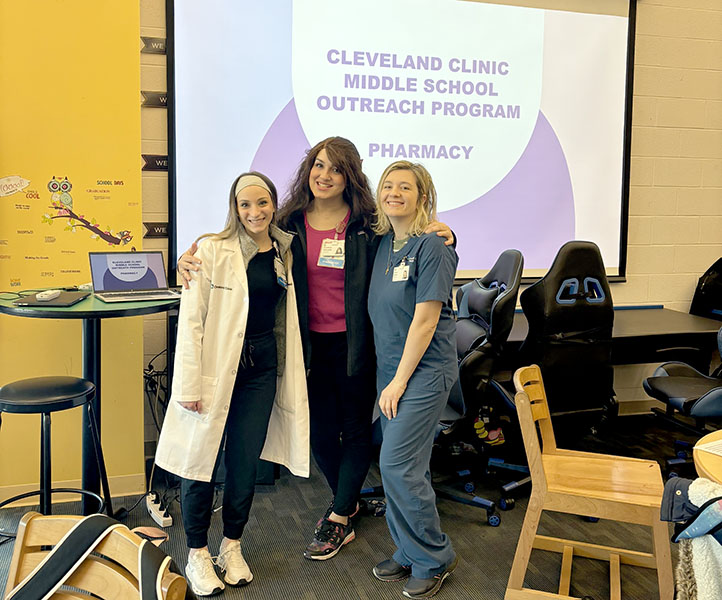
Involvement Committee
Is responsible for social events and bonding activities for the residency classes. The primary responsibilities include organizing monthly group outings or activities for the residents and assisting with informal and formal graduation preparations. Some of the other popular events under the committee’s purview are birthday celebrations for each resident, resident holiday celebrations, and outings such as Guardians baseball games and zoo lights.

Service Committee
This committee coordinates several community services events and fundraisers throughout the year, both small and large. Past events have included VeloSano, Light the Night, Adopt-A-Family, and Ronald McDonald House events. There is also an annual fleece sale/fundraiser coordinated by the committee in which proceeds are donated to a rotation of local Cleveland charities. Residents have greatly enjoyed these unique opportunities to engage with others and serve the community!
